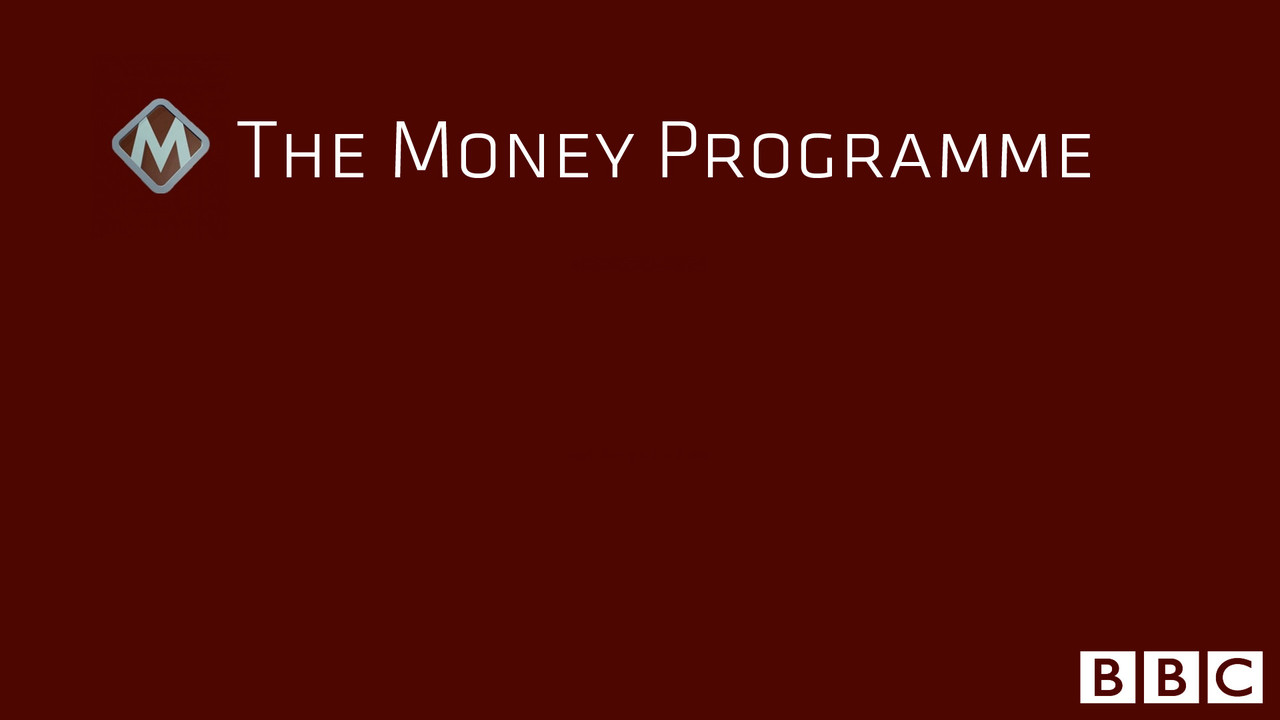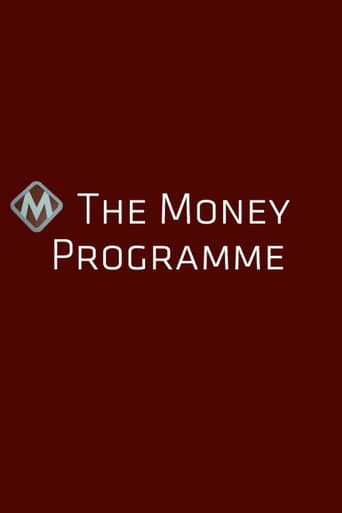With 30 Day Free Trial!
The Money Programme
1966
Britain's most popular financial and business programme.
Watch Trailer
The Money Programme Season 2008 Full Episode Guide
The credit crunch may have put the brakes on the UK economy, but a fast-growing but relatively unknown financial institution may just come to the rescue - the sovereign wealth fund. Typically owned and run by countries in the Middle and Far East, these funds have huge reserves of cash and they want to invest it.
Britain's 10 million small shareholders are being systematically targeted by an international criminal network of fake investment firms who have conned them out of millions of pounds. When Dr John Ashley got a letter from Spain offering him free advice on his savings, he thought it wouldn't do any harm to say yes. How wrong he was. Eighteen months later and £60,000 poorer, Dr Ashley rued the day he listened to Madrid-based investment firm Benjamin Fisher.
"Nudge, nudge, wink, wink, interest you in a cheap watch, guv?" That's the traditional image of fakes, the way it used to be, the spiv with his coat lined with counterfeits. But things have changed. These days there is nothing that's not being faked; films, fashion, spare parts, drugs, tea bags, cigarettes, even toothpaste. You name it, someone somewhere will be knocking it off.
With 620 million cars worldwide and fossil fuels running out, are biofuels the green solution to our energy needs? Now there's a revolution going on in the garages of the UK as individuals and companies switch to biofuels. Retired teacher Dick Jones makes his own biofuel, to power his people carrier from the local pub's converted chip fat. Although the chemicals involved are potentially dangerous, the rewards can be worth it. Jones says he likes "the idea of using a waste product to make oil, and I like the idea of being energy independent, but it also saves a lot of money". It costs him some £21 for a tank of home-made bio-diesel, compared with £80 at the garage. Growing phenomenon Businesses including McDonalds and Stagecoach are starting to experiment with biofuels. # UK Biofuel consumption 2004 - 21 million litres # 2005 - 118 million litres # 200 - 264 million litres # 2006 - 264 million litres # 2007 - 500 million litres Source: HM Revenue & Customs They are both trialling fuels made from used cooking oil. But unfortunately there is not enough used chip fat to power our entire economy, which is why biofuels made from food crops like maize, wheat, palm oil and rapeseed, are seen by some as the answer. The justification is when the plant-derived biofuel is burned in an engine, the CO2 released is offset by the amount of the gas that the plants absorbed as they grew. Previously, only Brazil (and at one point Zimbabwe) made fuel from sugar cane, but now the US and Europe see biofuels as the way forward. The UK Government has said that by 2010 5% all UK fuel should come from biofuels. The EU has gone even further, setting a target of 10% by 2020. Food or fuel But how are we going to reach those targets? Critics argue it will mean diverting crops from food to fuels. Will the knock-on effect be a hike in the prices of cereal and grains which hit those already living in poverty hardest? Greenpeace's John Sauven says that "when it comes down to it, you can put food in someone's stomach or you can put fuel in the tank of the car and it's that kind of black and white". And the criticisms don't stop there. Mr Sauven says the demand for biofuels has piled even greater pressure on the world's already fragile rainforests. "It's a disaster to see the rainforests being cleared whole-sale and massive monoculture palm oil plantations put in their place," he says. Traceability Both the UK and the EU have issued guidelines on sourcing biofuels from sustainable sources, but it is hard to enforce. # Average UK unleaded petrol prices Feb 2008 - 104 pence per litre # Feb 2007- 86 pence per litre # Feb 2006 - 90pence per litre # Feb 2005 - 80pence per litre # fact here # Feb 2004 - 81.9pence per litre # Feb 2003 - 80.2pence per litre Fuel giant Shell says it could not guarantee its biofuels do not come from palm oil. Shell's head of Future Fuels, Graeme Sweeney, says "traceability will improve over time". "It won't be possible in the beginning to trace everything, but that doesn't mean to say that we shouldn't do all that we can," he continues. But the bio-fuel industry is not the only one to place demands on palm oil resources. National differences Andrew Owens, of biofuel manufacturer Greenergy, believes the biofuel industry has been unfairly blamed. Although it does not use palm oil, Mr Owens says "you have to look at all the consumers of palm oil, and not just biofuels". "The lion share is the food industry." The car industry has embraced biofuels, investing in designing the so called 'flex-fuel' car, which can run on either unleaded petrol or biofuel. The market leaders are the Ford Focus and the Saab bio-power., but if you do want to run them on the maximum biofuel efficiency, there there's a hitch: the cars take 85% biofuel, known as E85 and it is only available at a handful of UK forecourts. There is a country where things are different: Sweden. There are more than 1,000 biofuel stations there and...
hey did not exist a decade ago, but now it is estimated that the price comparison website industry is worth more than a billion pounds a year. When it comes to making financial decisions, from switching energy providers to buying car insurance, more than six million of us log on to them every month.
The Money Programme's Fiona Bruce gained exclusive access to Bill Gates as he prepared to step down from full-time involvement with Microsoft in June 2008. His audacious mission to put 'a computer on every desk and in every home' is now close to a description of modern life. In building his multi-billion dollar company, Gates made himself the richest man in the world, but he has also been dogged by controversy, as his ruthless leadership contributed to Microsoft being sued by the US Government. In a special one-hour edition of the Money Programme, Fiona Bruce presents the definitive profile of Bill Gates as he embarks on his latest challenge - giving away the billions he has amassed, through the charitable foundation he runs with his wife and his father. She examines the fortunes of Microsoft as it faces up to competition from internet-based companies. And the programme talks about Gates the man, the businessman and the philanthropist with a who's who of his friends, colleagues and rivals.
The value of gold has been going through the roof. Its price has quadrupled since 1999, and in March this year it reached $1,000 an ounce for the first time. With uncertainty in the markets and turmoil in the banks, more and more people are turning to gold.
Despite the credit crunch, increasing inflation and falling house prices, some businesses are reporting record profits. Pawnbrokers, bailiffs, company liquidators and discount retailers are recording bulging order books and soaring profits. The boss of Ryanair says the slump is actually good for his business.
Free Trial Channels
Seasons


























